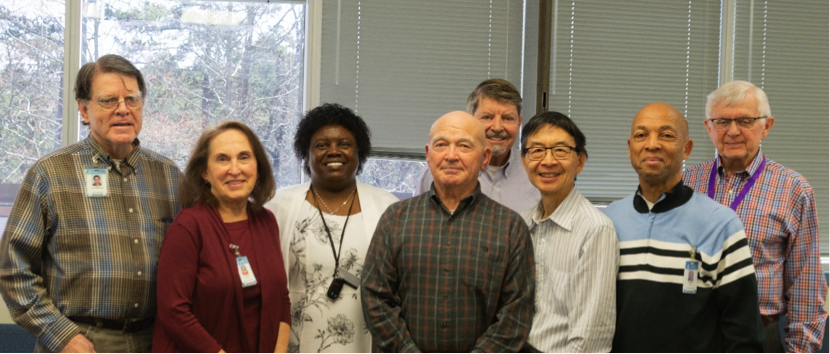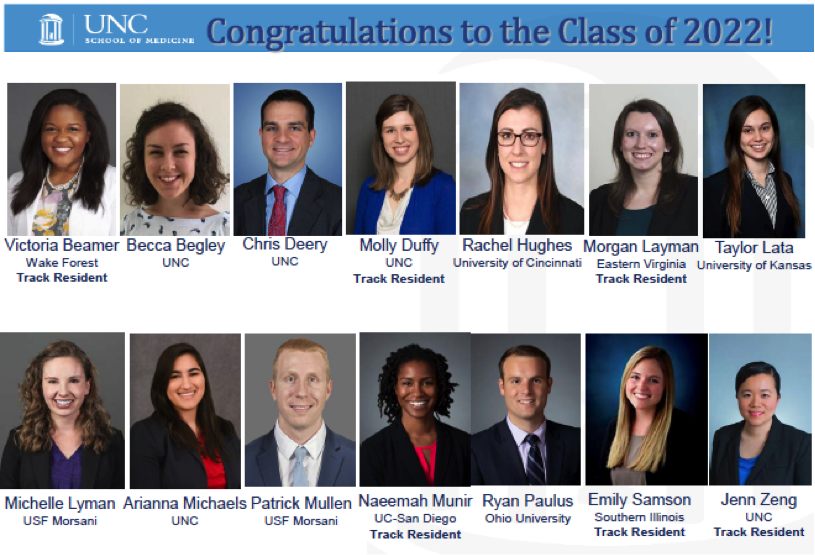UNC School of Medicine #1 2020

In the annual rankings of “America’s Best Graduate Schools,” U.S. News & World Report ranked UNC School of Medicine 1st in primary care for the second year in a row, thanks to our faculty, staff, learners, and our colleagues in other primary care departments in the SOM. The department of family medicine has also been ranked #4 in the nation.
Let’s Talk Health with Dr. Neutze: Vaccinations
Vaccines have been around for over 200 years, and since then, there have been dramatic decreases in deaths and disabilities from diseases such as measles, polio, tetanus, pneumonia and whooping cough, to name a few. We give the majority of vaccines to children, the most vulnerable, in order to protect them against these diseases.
Keeping your child up-to-date with their vaccines is as important as choosing the foods they eat and the medicines they take to keep them healthy. But we know that many of you still have some concerns when it comes to vaccinations.
Some of the most common questions and concerns we hear are:
- Why does my child need so many vaccines?
The body slowly builds immunity to disease with vaccines. Some of the vaccines work best by giving repeated doses every couple of months. The American Association of Pediatrics has carefully designed a vaccine schedule that will protect your child the best.
- Those diseases don’t even exist anymore—why do I need to vaccinate my child?
It’s easy to feel like polio and the measles are yesterday’s problem. But these diseases are not gone—they are only under control because of vaccinations. Even today, there are measles outbreaks like the recent one in Washington state that happen when vaccination levels fall within a community.
- Do vaccines cause autism in children?
No scientific study or data has been able to support this connection — period. For more information, read here.
- Is there a vaccine that can protect against cancer?
Yes! There are actually two. Both the hepatitis B and human papilloma virus (HPV) vaccines can prevent cancer. Even though the risk of cancer doesn’t develop until later in life, we recommend getting these vaccines as a child when they can have the most protective effect.
As a parent, we make so many choices for our kids — from diaper brand, to diet, to type of daycare, to how we teach our children about the world they live in. With so much conflicting information available, these choices can be difficult. It’s natural to feel uncertain as you try to make the best choices for your child. Luckily, there is one choice that is easy, safe, and protects all of us: vaccinations.
If you are still unsure about vaccinations, talk to your primary care provider. Your provider can help talk you through your concerns. Below are some additional resources with information about vaccinations, discussing your concerns with your provider and recommended vaccination schedules. ![]()
Additional Resources about Vaccinations:
Operation Medicine Drop
Safe Kids of Orange County, Orange County Sheriff’s Office, Carrboro Police Department and the Orange Partnership for Alcohol and Drug Free Youth are collaborating to bring Operation Medicine Drop back just in time for spring cleaning! So clean out your medicine cabinets and get rid of expired or no longer needed medication and bring them on: 
Saturday, April 27th
10am – 12pm
at Harris Teeter in Carrboro
or bring them to a permanent drop box at any of the Orange County law enforcement agencies, the Hillsborough Pharmacy or UNC Hospital during regular business hours.
The Patient Advisory Council is recruiting new members!
As part of our commitment to being a certified patient-centered medical home, UNC Family Medicine works hard to include the patient voice in all activities. The Family Medicine Patient Advisory Council (PAC) consists of a group of patients, faculty and staff members. The PAC has a vested interest in helping the Family Medicine Center be the best it can be. It does this by providing input to faculty and staff in clinical processes, research, community health initiatives and patient communications. We are hoping to recruit new members that are as diverse as the patient population we serve. Would you like to join our team?
If you are interested in learning more about this opportunity, please contact Tim Smith at either tismith@email.unc.edu or 984-974-4996.

Living Healthy Class available in Garner
Living Healthy is a free six-week workshop for people who live with chronic disease and/or their caregivers. It offers a menu of healthy ways to live with disease while balancing everyday life. Learn more on the website here. Patients can enroll by calling 919-545-3440 or going online here.

Available classes:
Mondays
April 29–June 10
(Class will not meet on Memorial Day, May 27)
1:00-3:00 pm
Garner Senior Center
205 East Garner Road
Garner, NC 27529
Family Medicine welcomes new residents
Every spring, UNC Family Medicine welcomes a new class of resident physicians. This past month we were fortunate to have matched a wonderful group of learners with diverse backgrounds from across the nation, each having a wide range of interests within Family Medicine. We look forward to them joining our clinical team this summer!

April is Cancers of the Head and Neck Awareness Month
Just because you can’t feel it, doesn’t mean it isn’t there. Just ask the more than 50,000 Americans who were diagnosed with cancers of the head and neck last year. Unfortunately, many Americans do not recognize the symptoms of these life-threatening diseases — including cancers of the oral cavity, larynx and pharynx — and by the time they are diagnosed, for some, it’s too late.
Oral, head and neck cancers claim approximately 12,000 lives per year. However, there is hope. If diagnosed early, these cancers can be more easily treated without significant complications and the chances of survival greatly increase.
What are the potential warning signs of oral cancers?
The signs and symptoms of oral cancer often go unnoticed. However, there are a few visible signs associated with these cancers that require immediate attention, including:
- A sore in your mouth that doesn’t heal or that increases in size
- Persistent pain in your mouth
- Lumps or white or red patches inside your mouth
- Difficulty chewing or swallowing or moving your tongue
- Soreness in your throat or feeling that something is caught in your throat
- Changes in your voice
- A lump in your neck
How can I get screened locally?
The screening is painless and only takes about 10 minutes. Free screenings will be offered at more than 300 participating institutions worldwide as part of OHANCAW, which is scheduled for the month of April. Visit https://headandneck.org/events/map/ for the full list of participating sites and for more information.
OHANCAW is sponsored nationally by the Head and Neck Cancer Alliance.

